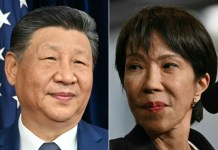At a time when the world is fighting a deadly virus, African countries seem to be winning the battle against COVID-19. What have countries like Senegal and Ghana done to curb the impact of coronavirus?
Can Kashmir Conflict Drive India, Pakistan Towards A Nuclear War?
Earlier, experts were apprehensive about the handling of the coronavirus, especially in the African continent which has a poor economy, large population and inadequate health care systems.
Countries like Senegal and Ghana reported extremely low fatalities due to coronavirus; the question is what these African countries do differently than the rest of the world?
Afua Hirsch, a columnist at the Guardian tried to solve this mystery and says that African countries realised early on that “large-scale, expensive testing and hospitalisation was not an option and thus had no choice but to take a more creative approach”.
World Health Organisation (WHO) declared COVID-19 as a Public Health Emergency of International Concern on January 30, 2020, while it took them more than 2 months to declare it a pandemic which was announced on March 11.
Senegal, a West African country, took measures to control the virus as early as January. When the western world was still contemplating about its plans to fight the virus, Senegal closed down its borders and came up with a comprehensive program for contact tracing.
Currently, it even has trials going on for a COVID-19 testing kit which costs as low as $1 and is expected to show the result in less than 10 minutes.
“It’s hard to know exactly how this compares with the price of Britain’s tests, but many of them use polymerase chain reaction, or PCR, to detect the virus, and cost hundreds of dollars. And I can testify that a leaflet that came through my door in London this week offered me a private testing kit for £250,” wrote Hirsch.
“Senegal is doing quite well, and we were impressed at the beginning at the full engagement and commitment by the head of state,” said Michel Yao, program manager for emergency response for the WHO Africa.
With a population of 16 million, Senegal has a death toll of only 30 people.
Similarly, Ghana has a population of 30 million people with a similar death toll as Senegal. Along with a holistic system of contact tracing and employing a large number of community health workers and volunteers, Ghana has deployed other innovative techniques such a “pool testing”.
WHO is studying this technique in which multiple blood samples are tested together and processed separately only if a positive result is found.
Due to lack of expensive pharmaceutical products, traditional herbal remedies are being tested. Madagascar’s president, Andry Rajoelina, claimed a drink, which is reportedly made from Artemisia annua (sweet wormwood) and herbs, as a “preventive and curative remedy” and “works really well”.
He further questioned that “If it was a European country that had actually discovered this remedy, would there be so much doubt?”. More than 20 African countries are relying on this “cure” and have ordered the Madagascan drink.
WHO responded to this “cure” by saying that “Medicinal plants such as Artemisia annua are being considered as possible treatments for COVID-19 and should be tested for efficacy and adverse side effects”.
Hirsch claimed that she contacted Max Planck Institute of Colloids and Interfaces in Germany, which is currently conducting clinical trials on a different breed of the same plant.
“This specially grown, more potent variety of sweet wormwood is being tested on cells to determine its effectiveness in fighting coronavirus infections and the results so far, the institute’s director, Prof Peter Seeberger, told me, are “very interesting”. Human clinical trials are likely to follow,” she wrote
“It has been well documented how a patronising attitude towards east Asia is what allowed European countries to be caught by such surprise at the spread of this disease. Now a similar mindset seems set to ensure we don’t learn the lessons Africa has to offer in overcoming it,” concluded Hirsch.




